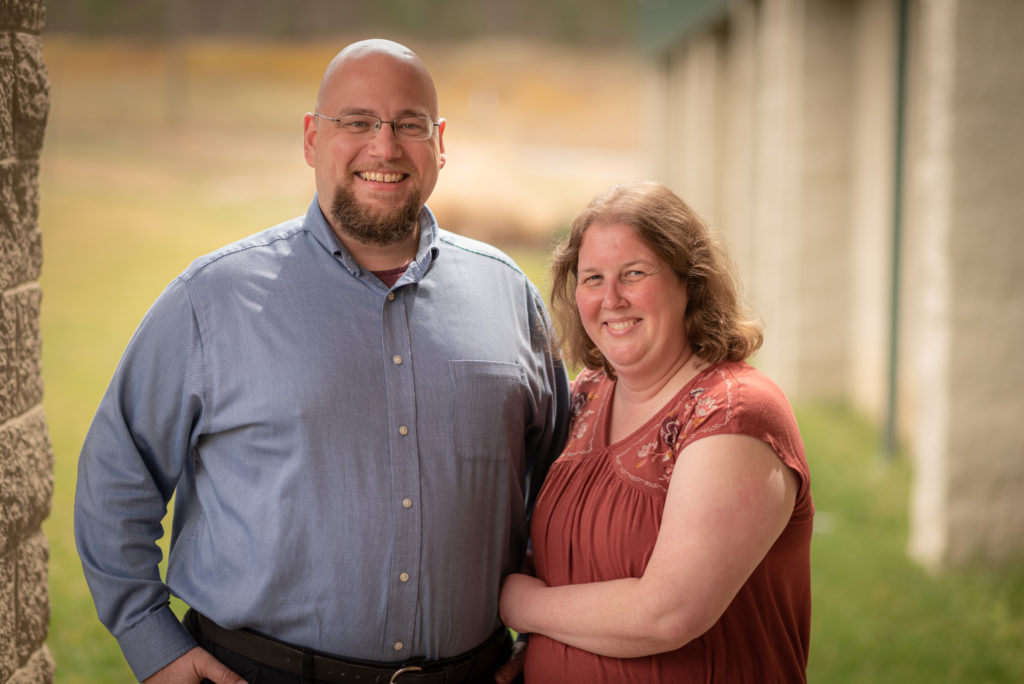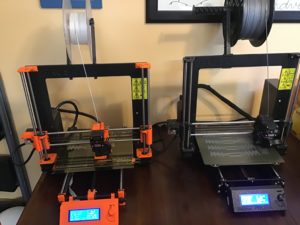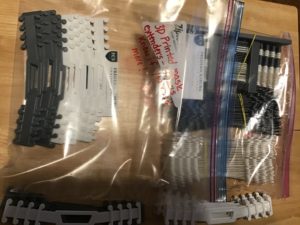Mask Extenders for Area Hospitals

In the midst of adjusting to an abrupt shift to online learning, innovative staff members at FCS led an effort to give back to the community.
In the weeks before schools closed across Virginia to slow the spread of the novel coronavirus, Emily King, Instructional Technology Administrator at Fredericksburg Christian School (FCS), had an inkling that things were about to change.
It may have been at least partly due to reports from her brother, who works for Microsoft in Seattle. As someone living in the area that saw some of first US cases of COVID-19, his reports provided a preview of what was likely on the horizon for the rest of country. Emily remembers him “telling us schools were starting to shut down, making it necessary for educators to quickly adapt and learn new skills.”
King, along with her husband, Brian, who serves as the Directory of Technology at FCS, didn’t hesitate to begin work on a contingency plan that could quickly be put in place in the event of a long-term school closure. Within a few days, “we had put together a comprehensive training day that made use of various online learning tools. We wanted to be ready if anything happened,” King recalled. Their timing could not have been better. “In the middle of our training day, our superintendent announced we were closing.”
 While no one knew how long schools would be closed, staff members worked through the weekend to make the shift to online learning. By Wednesday of the following week—less than one week after schools closed—FCS was up and running with a virtual version of its full course load. “I was amazed at how our teachers stepped up,” Emily said. “They didn’t complain, but were committed to learning the strategies and skills necessary to help their students finish the year strong.”
While no one knew how long schools would be closed, staff members worked through the weekend to make the shift to online learning. By Wednesday of the following week—less than one week after schools closed—FCS was up and running with a virtual version of its full course load. “I was amazed at how our teachers stepped up,” Emily said. “They didn’t complain, but were committed to learning the strategies and skills necessary to help their students finish the year strong.”
King held daily virtual meetings with teachers to answer questions and trouble-shoot problems. Both Emily and Brian also helped parents navigate the ins and outs of online learning and addressed any technical issues that popped up. As both Mr. and Mrs. King worked to support all aspects of this new way of conducting school, the couple’s home turned into the tech nerve center of FCS. All the while, Emily and Brian managed the virtual schooling needs of their son, who is deaf and blind.
In addition to addressing the academic need of their students, it was also very important to FCS to keep students engaged and connected, and they actively sought out ways the school could contribute to the broader community response to the pandemic.
Part of the technology curriculum at FCS exposes students to 3D printing as early as kindergarten. When the Kings learned that 3D printers were being used to help augment hospitals’ supplies of personal protective equipment, they saw a role for the school to play.
As FCS staff, along with some students, contacted local hospitals, a common need emerged: plastic face mask extenders. These extenders make masks more comfortable as they hold the elastics away from the ears. Using two of the school’s four 3D printers, Emily and Brian began printing the extenders throughout the day on their dining room table. They also set up systems to safely deliver the finished extenders to local hospitals. As a result, FCS provided hundreds of mask extenders to Mary Washington Hospital, Stafford Hospital, and Spotsylvania Regional Medical Center. An additional 500 mask extenders were provided to area doctor’s offices.
Fostering a sense of community—both within and outside of the school—was an important part of maintaining a healthy learning environment at FCS during a school year like no other. This was done not only through service projects like the 3D printing, but also within the school through the distribution of a prayer list to the school community, extending support to students and families, and encouraging collaboration among teachers.
